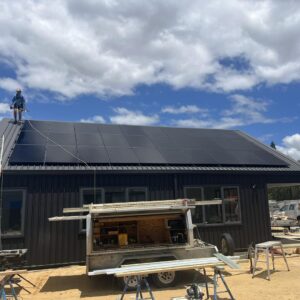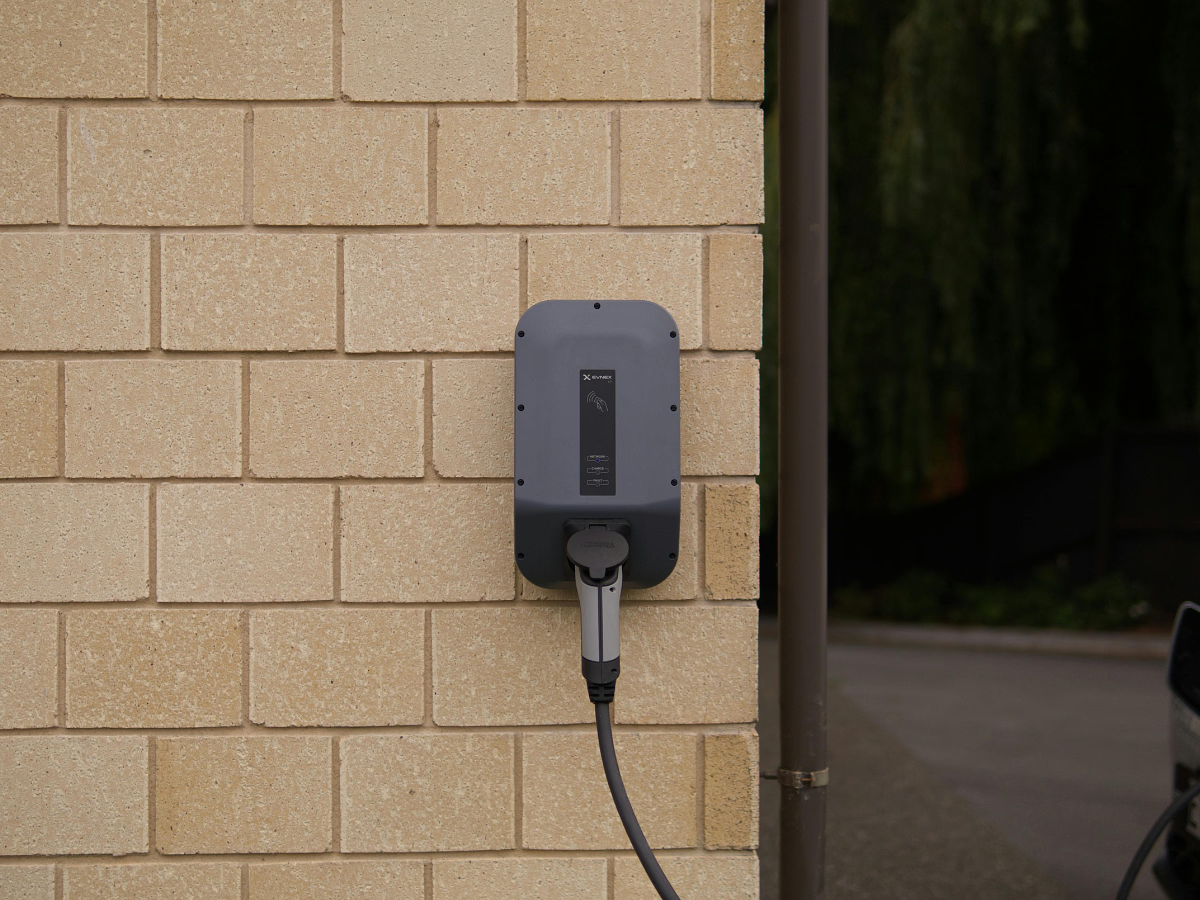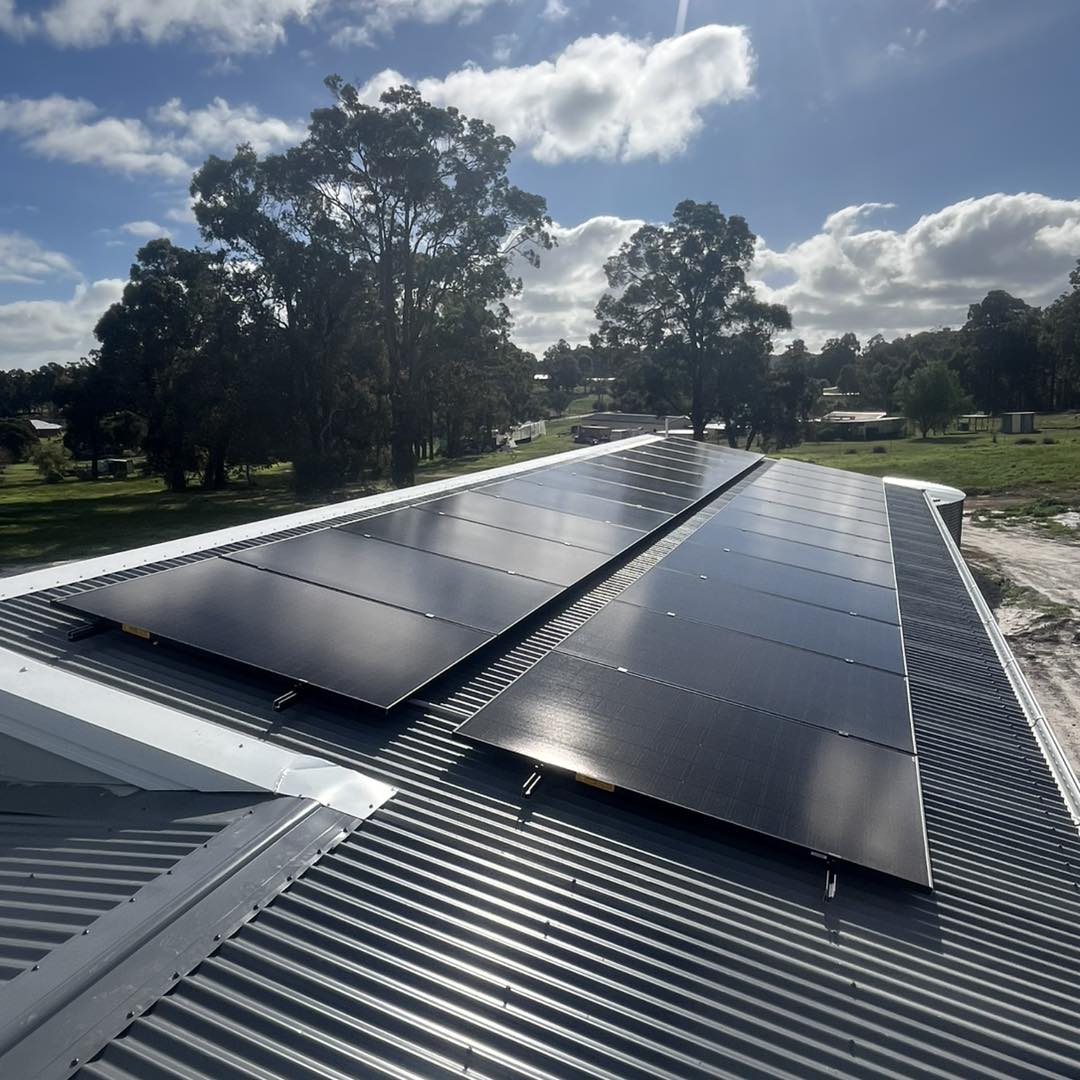Australia’s sun-drenched coastline makes it the perfect location for solar energy—especially in Western Australia. But if you’re a homeowner living near the sea, your solar panels are likely battling more than just sunshine. Think salt spray, wind-blown dust, and coastal grime. These factors can significantly reduce your system’s performance if left unchecked.
In this blog, we’ll guide you through everything you need to know about solar panel cleaning in coastal WA—including how often to clean them, the best cleaning methods, whether to go DIY or professional, and how to maintain maximum performance through strategic care and service.
Why Solar Panel Cleaning Matters—Especially in Coastal WA
While solar panels are relatively low maintenance, they aren’t maintenance-free. In coastal areas like Albany, Geraldton, Busselton, and Margaret River, salt buildup and airborne debris can reduce your solar panel efficiency by 15–25% or more, depending on conditions.
At MaxSolar, we’ve seen firsthand how neglecting basic cleaning can shorten a system’s lifespan and reduce energy output. This is why a regular cleaning and solar panel maintenance service is crucial—especially where salt spray and sea winds are a daily reality.
How Often Should You Clean Solar Panels in Coastal WA?
Cleaning frequency depends largely on your environment and how much debris accumulates. For most WA homeowners close to the ocean:
• Every 3–6 months is ideal for coastal locations
• Every 6–12 months may suffice in inland or low-pollution areas
• After a major storm or extended dry spell, check for salt and dust
• Professional inspections annually can identify buildup that isn’t easily visible
Even if your panels look “clean,” microscopic salt crystals can layer over time and scatter sunlight, reducing performance.
Signs Your Panels Need Cleaning
Not sure if it’s time? Here are some common indicators of performance drop due to grime or salt buildup:
• Sudden dip in energy production
• Noticeable streaks, residue, or film on panels
• Bird droppings, leaf debris, or pollution smudges
• Coastal homes may notice white salt haze or film-like coating
If your monitoring system shows declining output, a clean might be the simplest fix.
Salt Spray Issues: The Hidden Enemy of Coastal Solar Systems
In coastal WA, salt spray is the number one culprit behind dirty, underperforming panels. Carried by wind, salt particles can:
• Form a hazy film that reduces light absorption
• Corrode aluminium framing and mounting systems
• Attract moisture and increase surface grime adhesion
This salt layer builds up over time—even with occasional rain. While rainfall can help wash off dust, it rarely removes stubborn salt and grime, especially on flat-mounted panels.
Routine solar panel cleaning becomes essential in these areas to prevent long-term corrosion and maximise your return on investment.
DIY vs Professional Solar Panel Cleaning
So, should you roll up your sleeves and clean the panels yourself, or call in a pro?
✅ DIY Solar Panel Cleaning: When It Works
If your roof is safely accessible and you’re confident working at heights, a gentle DIY clean can be done with:
• Soft-bristle brush or sponge
• Mild detergent (never harsh chemicals)
• Hose with gentle spray (no pressure washers!)
• Non-abrasive cloth or squeegee for drying
Tips:
• Clean during early morning or late evening to avoid panel damage from thermal shock
• Use deionised water if possible to prevent hard water marks
• Never walk on panels or scrub with hard bristles
However, improper DIY cleaning can cause micro-scratches, void warranties, or lead to personal injury. Always consider safety first.
✅ Why Professional Solar Panel Cleaning is Best in Coastal WA
A professional cleaning service offers peace of mind—especially in harsh environments like the coast. At MaxSolar, our service teams use:
• Soft water systems with no residue
• Telescopic cleaning poles for safe ground-level cleaning
• Safety harnesses and roof access equipment
• Maintenance checks during cleaning (mounts, inverters, wiring)
Benefits of going pro:
• Expertise in identifying performance loss areas
• Safe, efficient, and damage-free service
• Optional monitoring and reporting to track post-cleaning performance
• Can be combined with scheduled maintenance
For the best results, schedule a solar panel maintenance service alongside your clean. This ensures all system components are operating efficiently—not just the panels themselves.
Book your MaxSolar service and cleaning now and keep your system performing like new.
Best Cleaning Methods for Coastal Solar Panels
When cleaning panels, you want to remove grime without damaging the coating. Here are some expert-approved techniques:
1. Gentle Manual Cleaning
• Use a soft sponge or cloth with warm water and mild soap
• Rinse thoroughly with a hose
• Avoid cleaning during peak sunlight hours
2. Deionised Water Systems
• Leaves no residue or streaks
• Ideal for coastal homes dealing with salt buildup
3. Robotic Cleaning Systems (Large Arrays)
• Used more in commercial solar farms
• Not typically recommended or cost-effective for residential homes
4. Annual Maintenance Packages
• Combine panel cleaning with inverter checks, wiring inspection, and performance logging
Maintenance Service: More Than Just Cleaning
While cleaning is crucial, comprehensive solar maintenance is what ensures long-term reliability. Our MaxSolar Maintenance Services include:
• Visual inspection for corrosion, wear, or mounting issues
• Output checks and system diagnostics
• Inverter testing
• Thermal imaging for hotspots (if needed)
We often find that performance issues mistaken for “dirty panels” are actually due to wiring faults, shading, or inverter inefficiencies. This is why an integrated maintenance strategy—not just one-off cleans—is the smartest path forward.
How Monitoring Helps Catch Performance Drops Early
Pairing your cleaning and maintenance routine with solar monitoring tools helps:
• Track daily, monthly, and yearly performance
• Alert you to dips in generation—often a cleaning cue
• Benchmark output before and after a clean
MaxSolar can install or sync your system with smart monitoring apps, giving you real-time visibility and prompt alerts if your panels aren’t pulling their weight.
How the Coastal Climate Affects Your Cleaning Plan
Here’s how different weather events impact your solar system in coastal WA:
|
Event |
Effect on Panels |
Recommended Action |
|
Salt Spray |
Leaves fine residue |
Clean every 3–6 months |
|
Dry Season |
Dust accumulation |
Clean every 4 months |
|
Heavy Storm |
Debris, leaf build-up |
Post-storm inspection & clean |
|
Wet Season |
Algae/moss in humid areas |
Biannual cleaning recommended |
Internal Services to Support You
At MaxSolar, we provide a full suite of services to help coastal homeowners:
• Solar Panel Cleaning Services
• Performance Monitoring and System Checks
• Maintenance Packages
• New System Installations or Upgrades
With years of experience in WA’s coastal conditions, we offer trusted, tailored solutions that match the region’s unique challenges.
Final Thoughts: Clean Panels, Maximum Power
Solar panel cleaning might not be the most glamorous part of owning a renewable energy system, but in coastal WA, it’s one of the most critical. The salty air, constant breeze, and environmental debris mean that regular cleaning isn’t a luxury—it’s a necessity.
Whether you choose DIY or professional help, make cleaning frequency part of your solar strategy. And when in doubt, trust MaxSolar’s expert team to keep your panels shining, your energy production high, and your investment protected.
Interested in a solar panel cleaning or full system maintenance?
Contact MaxSolar today for a tailored quote.
FAQs: Solar Panel Cleaning Coastal WA
1. How often should I clean solar panels in coastal WA?
Coastal solar panels should be cleaned every 3 to 6 months to remove salt spray and grime. If you’re unsure, annual professional checks will keep your system running at peak performance.
2. Can salt spray damage my solar panels?
Yes, salt can corrode frames, attract grime, and reduce efficiency. Regular solar panel cleaning in coastal WA is the best way to combat this.
3. Is DIY solar panel cleaning safe?
It can be, but it’s risky. DIY is fine for ground-mounted or easy-access roofs with the right tools. However, professional cleaning is safer and more thorough—especially near the ocean.
4. What’s included in a professional maintenance service?
A MaxSolar service includes panel cleaning, inverter inspection, system diagnostics, mounting check, and output testing—offering a full view of your system’s health.




